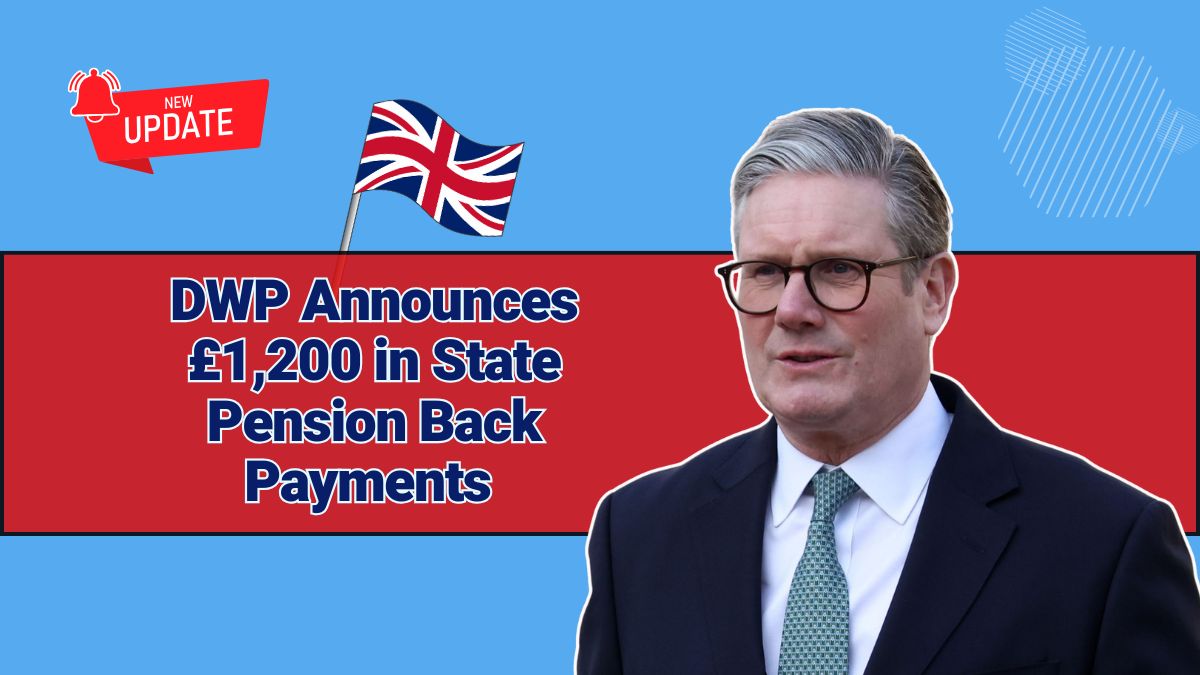The Department for Work and Pensions (DWP) has revealed a significant underpayment scandal impacting over 130,000 State Pensioners in the UK.
Following a large-scale review of pension records, the DWP is distributing back payments worth up to £12,000, with the average affected pensioner due around £1,200 or more.
This latest development shines a light on longstanding administrative errors that disproportionately impacted women, widows, and pensioners over 80 years old.
Who Is Eligible for the DWP Back Payments?
According to the DWP, three primary groups have been identified as being most affected:
1. Married Women (Category BL)
- These women were entitled to 60% of their husband’s basic State Pension but did not receive the adjusted payments automatically.
- Many continued receiving lower rates for years.
- Average back payment: £5,553
2. Widowed Pensioners
- After the death of a spouse, pensions should have been reassessed to reflect inherited entitlements.
- A large number of cases were never reviewed, leaving many widows underpaid.
- Average back payment: £11,725
3. Individuals Over 80 (Category D)
- Pensioners aged 80+ are entitled to a minimum pension, regardless of National Insurance contributions.
- Some missed these top-ups due to system failures.
- Average back payment: £2,203
Breakdown of Average Arrears by Group
| Pensioner Group | Average Amount Owed |
|---|---|
| Widowed Pensioners | £11,725 |
| Married Women (Category BL) | £5,553 |
| Over 80s (Category D) | £2,203 |
What Led to the Underpayments?
Multiple factors contributed to this widespread issue, including:
- Manual errors during pension processing.
- Outdated IT systems that didn’t trigger automatic recalculations.
- Lack of awareness or communication about changes due to marriage, widowhood, or turning 80.
- Failure to reassess pension eligibility over time.
Additionally, over 5,300 more cases were found through a review of Home Responsibilities Protection (HRP)—a policy designed to protect the pension rights of parents and carers—resulting in another £42 million in underpayments.
What Is the DWP Doing About It?
The DWP has responded by:
- Reviewing pension records dating back decades.
- Issuing back payments where underpayments have been identified.
- Working to improve system automation to avoid such errors in the future.
Despite these efforts, some pensioners have passed away before receiving what they were owed, and in certain cases, families cannot claim the funds through the estate.
What Should You Do If You Think You Were Affected?
If you believe you or someone you know is eligible for this payment:
- Check your pension records and National Insurance contributions.
- Contact the DWP Pension Service to request a review.
- Gather necessary documents:
- Marriage or death certificates
- Spouse’s pension statements
- DWP correspondence
Organizations like Age UK and Citizens Advice can help you navigate the process.
Why This Payment Matters in 2025
With inflation rising and fixed-income pensioners struggling with basic costs, receiving these DWP back payments is not just about money—it’s about fairness.
For many elderly women and vulnerable citizens, this is a long-overdue correction that could significantly ease financial stress and restore their confidence in the pension system.
The DWP £1,200 surprise payment boost is part of a broader effort to correct one of the UK’s most significant pension miscalculations in recent history.
Pensioners—especially widows, married women, and those over 80—should act now to ensure they receive what they’re rightfully owed. This financial relief could not come at a more critical time.
FAQs
How do I know if I’m eligible for the DWP back payment?
You may be eligible if you’re a married woman (Category BL), a widow, or over 80. Check your pension record or contact DWP.
How much money can I get from the back payments?
It depends on your category. Average payments range from £2,200 to over £11,000, with some individuals receiving up to £12,000.
Can families claim payments for deceased pensioners?
In some cases, yes. However, not all estates are eligible, and DWP’s review may determine the possibility of repayment.
